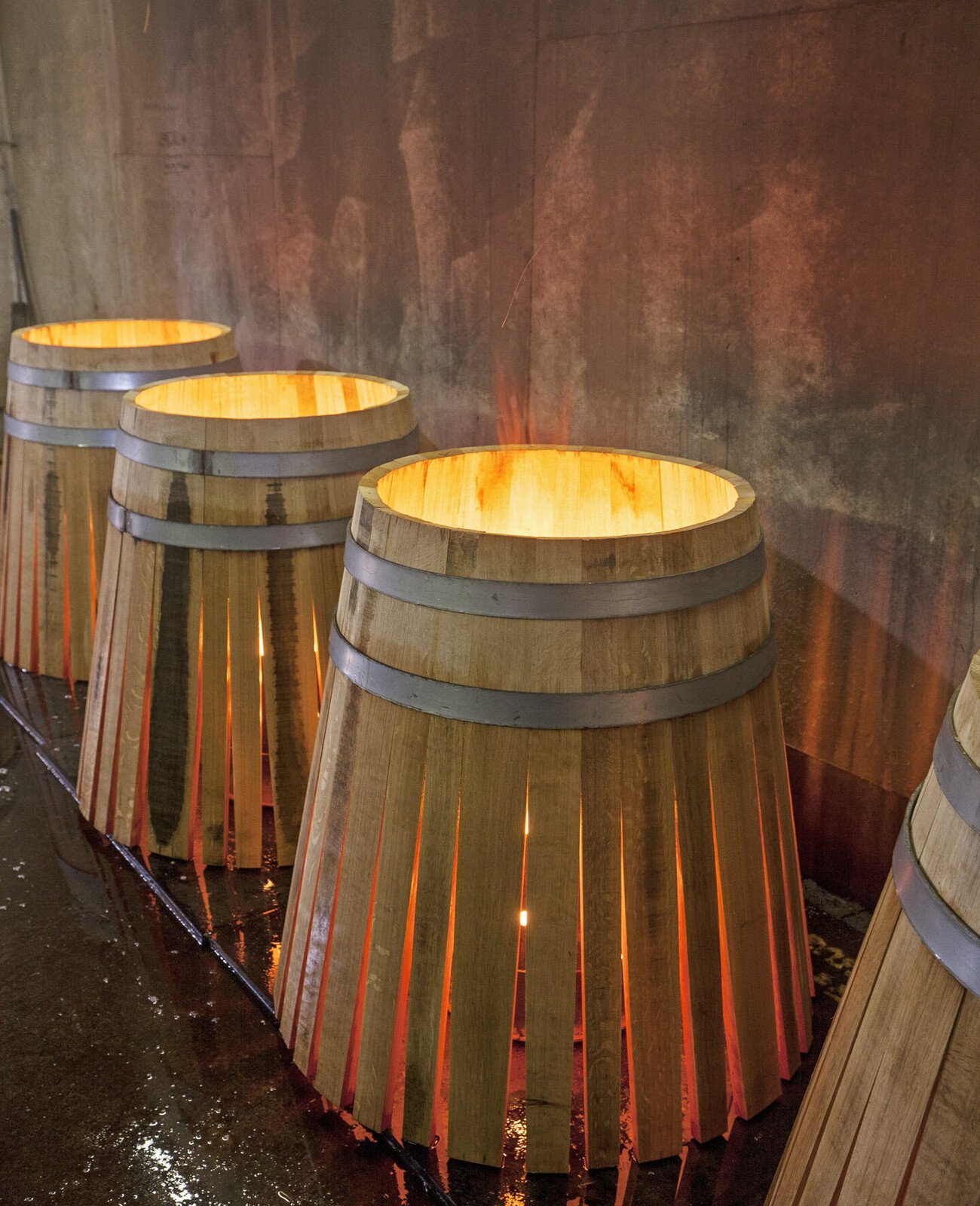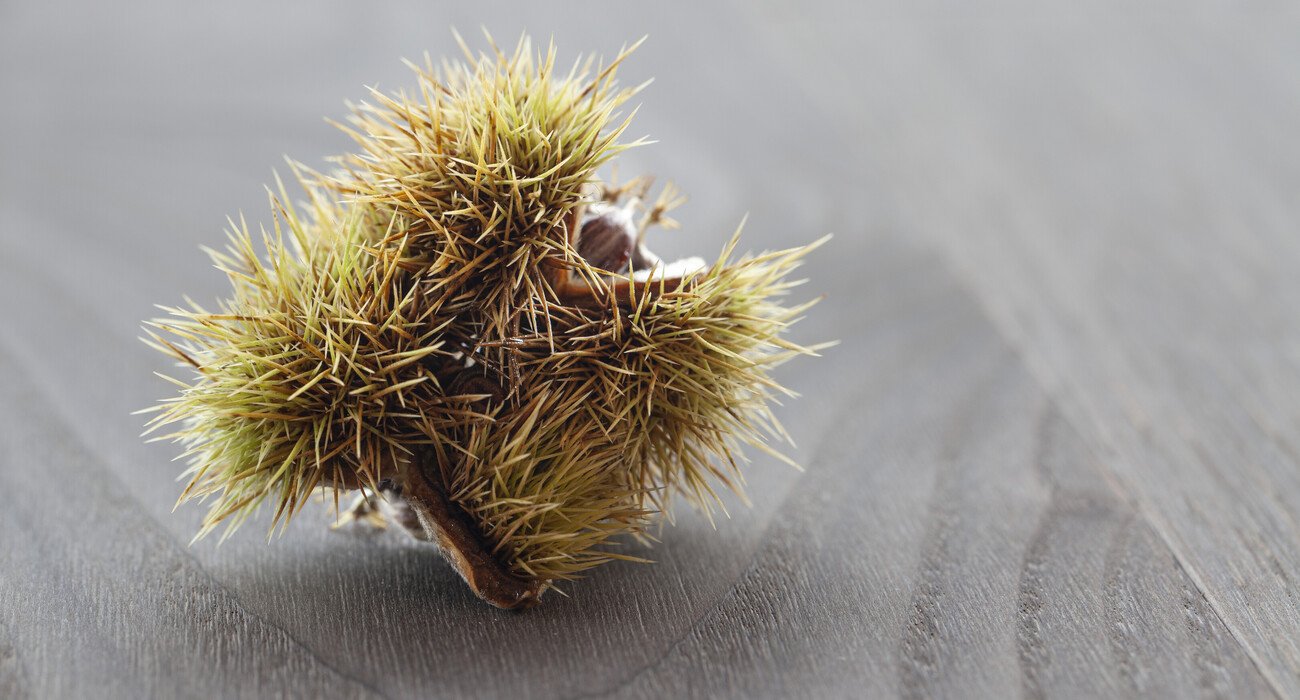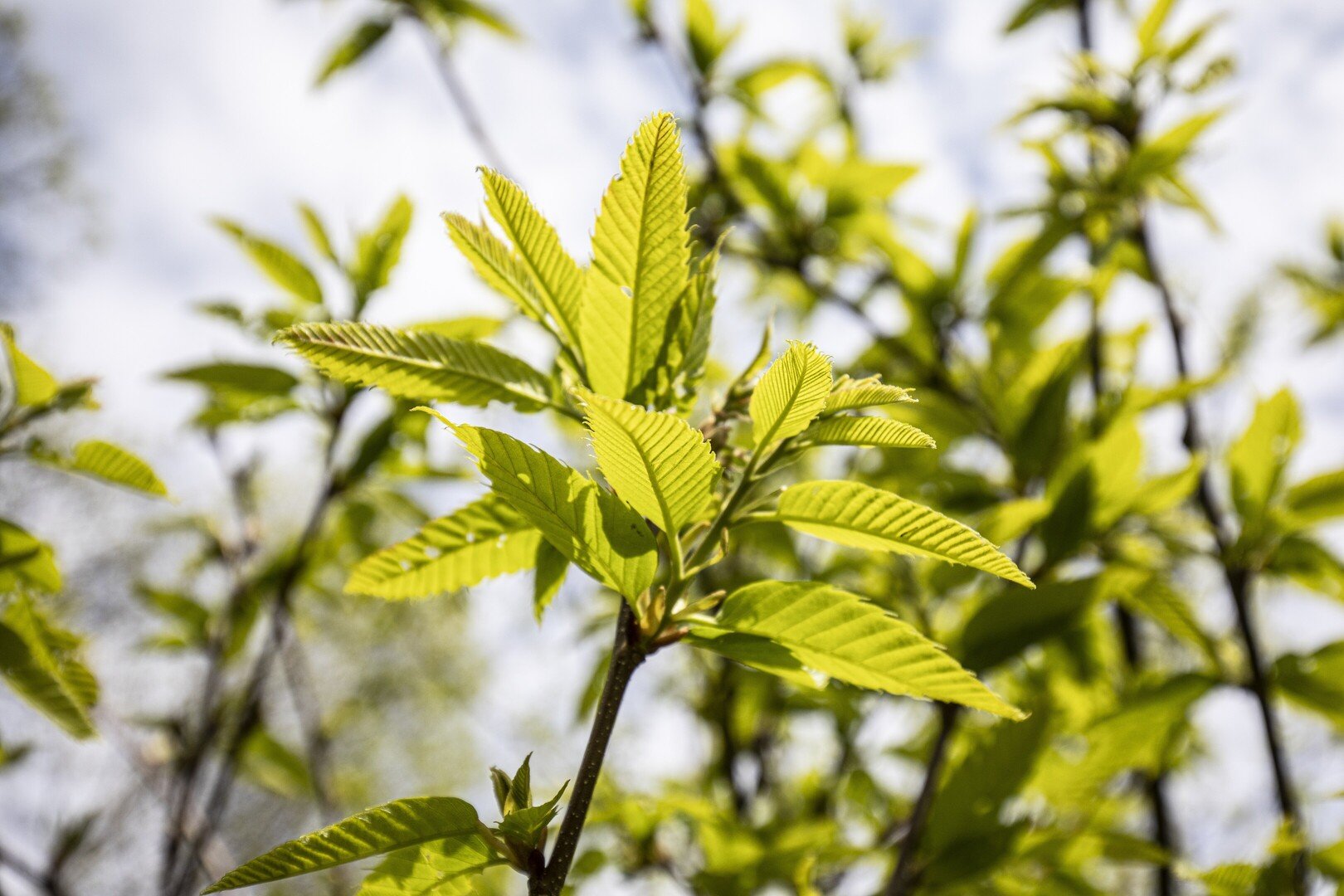Our wooden selections
Species, Colors and Grades
For our natural wood floors, we exclusively process wood from European forests: predominantly Sessile Oak, as well as Sweet Chestnut, Ash, Douglas Fir and Pine. To also create darker hues from these naturally rather light-colored woods, we apply a natural thermal-pressure treatment.
This process caramelizes the sugar (xylose) stored within the wood cells. Depending on the duration, this results in various shades ranging from soft golden tones to deep coffee and cocoa browns, all the way to warm (!) greys.
Our floors are crafted at the TRAPA workshops in St. Veit an der Glan, Carinthia.
Sessile Oak: The Finest Selection for Wine Barrels, Cutting Boards... and Natural Wood Floors!
Growing Region: Alsace

For TRAPA’s exceptional Terra and Bog-look Oak floors, we exclusively use premium-quality Sessile Oak from the Alsace region in France.
What makes this oak species so special? It’s the even tannic acid distribution throughout the wood, which equips untreated surfaces with a permanent antibacterial effect. This feature has long been utilized in the food industry for butcher blocks, cutting and serving boards. The tannins in sessile oak also play a crucial role in the aging of wines stored in barrels made from this wood.
TRAPA not only crafts healthy, antibacterial natural wood floors from Alsatian Sessile Oak, but also derives its rich, earthy colors from the valuable components of the wood itself.
Sweet Chestnut - A Valuable Flooring Wood

Due to its durable properties, Sweet Chestnut has been highly valued since Roman and Venetian times. Until the late 19th century, the trees’ fruits served as staple food for the rural population of Southern European mountain regions, often referred to as “bread of the poor.”
Like oak, its elegant wood contains high levels of tannins, and is therefore naturally antibacterial. It is used for a variety of purposes, including the production of furniture, window- and door frames as well as barrels. The tree is widespread in warmer regions of Europe and for the past 25 years its populations have been on the rise again.
TRAPA sources its Sweet Chestnut wood from the Italian Piedmont region.
